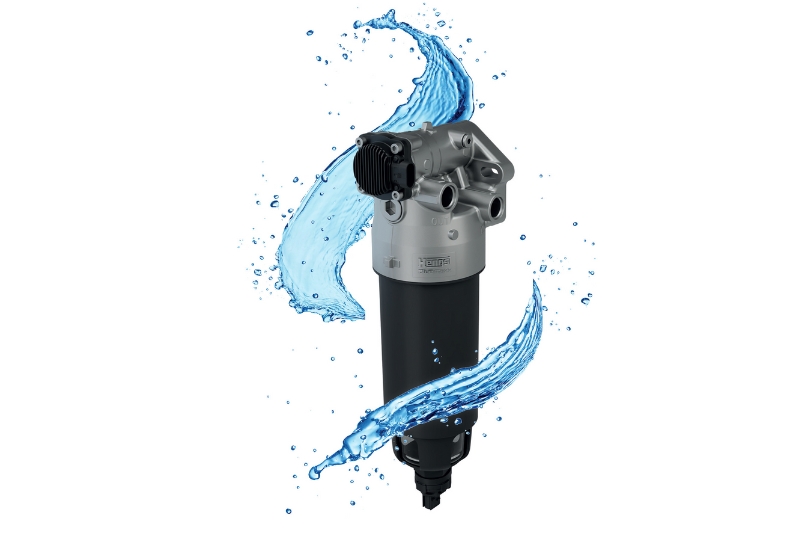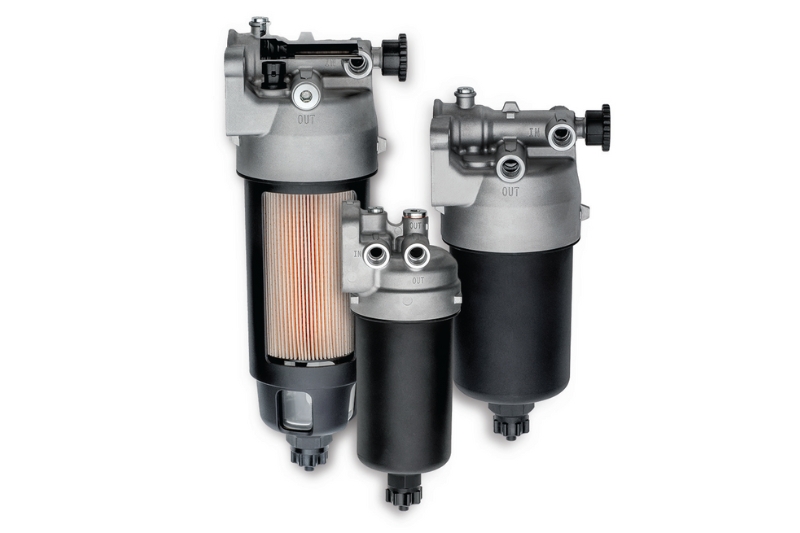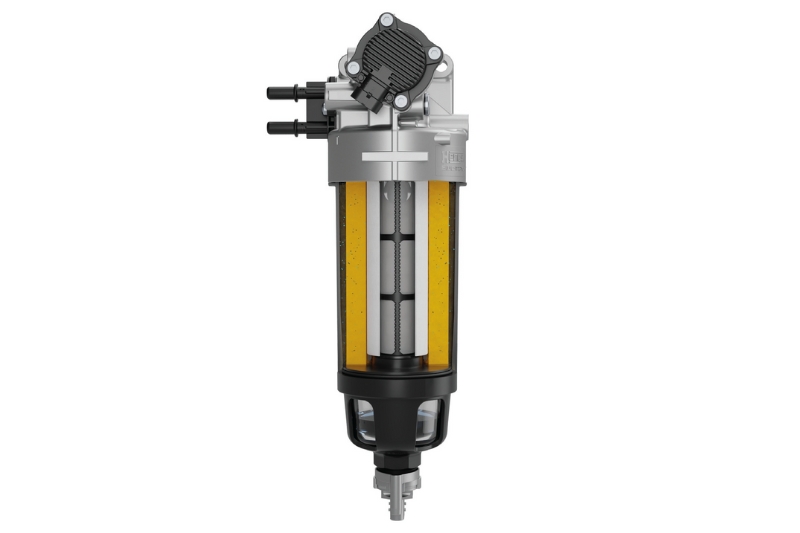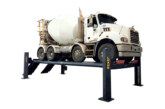How do biofuels challenge filtration systems?

The increasing adoption of biofuels poses a challenge for filtration systems. Hengst thinks it has the answer.
Due to the complex technology of today’s combustion engines, the integration of a modern filter system is essential since a large number of very fine particles and water droplets have to be reliably separated. In the future, alternative fuels and their blends will be increasingly used in commercial vehicles and in the off-highway sector, alongside alternative concepts such as electric drives, hydrogen engines and fuel cells.
Running risks
They can either be used in pure form or blended with fossil fuels. Fuels made from biogenic raw materials in particular, however, sometimes have very different physical and chemical properties compared to commercially available diesel. This can affect the service life of the materials used in the fuel filtration path. Problems may occur during operation due to ageing of the biofuels and the higher water absorption capacity. Known problems include increased water absorption, the formation of acids as a result of ageing, the increased risk of fungi and bacteria (so-called diesel sludge) and the formation of polymers due to reaction with oxygen. In the field, these issues can lead to filter blockages, corrosion and, in extreme cases, swelling seals and damage to the filter elements.

In order to maintain the usual operating characteristics of the diesel engine – such as low operating costs, high reliability and a long service life – efficient water separation by the filter helps contribute to both the prevention of diesel sludge and the reduction of corrosion in the fuel system.
Flexible fuel filter concept
In order to optimally adapt the fuel filter system to alternative fuels, Hengst has developed special test methods. They are embedded in the overall development process of advanced fuel filter systems and create the basis for the ongoing reliability and durability of modern engines. One example of the products developed in this way is the Blue.maxx fuel filter system.
The system is suitable for all current and expected future fuels used worldwide – on a fossil, biogenic and/or synthetic basis. To meet the diverse requirements of modern engine technology in the commercial vehicle and off-highway sectors, Hengst has designed the fuel filter system on a modular basis. It can be quickly and easily adapted to various applications as an OEM or retrofit solution for the aftermarket. A configurator available at www.hengst.com/blue.maxx provides selection assistance and determines the ideal Blue.maxx solution for individual applications in just a few clicks.

Fuel filter construction kit Blue.maxx
- High degree of customisation – available at short notice
- Leading quality standards in filtration – compared to conventional spin-on filters
- High degree of water separation over lifetime – guaranteed through innovative filter design
- Patent-protected filter elements guarantee high functional reliability
- Filter system with resistant materials for alternative fuels






![Bosch outlines ESI[tronic] workshop software](https://cvwmagazine.co.uk/wp-content/uploads/2025/07/Bosch-ESItronic-25-165x109.jpg)


